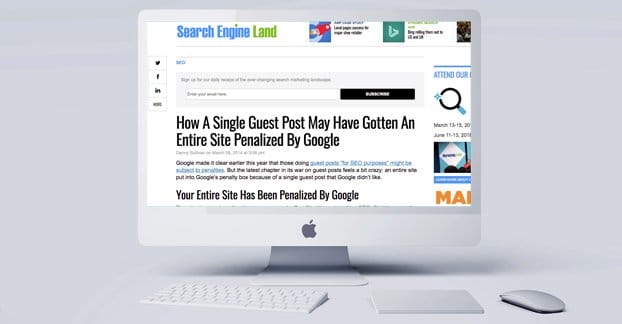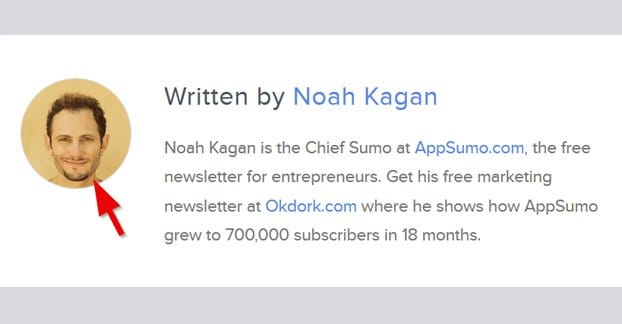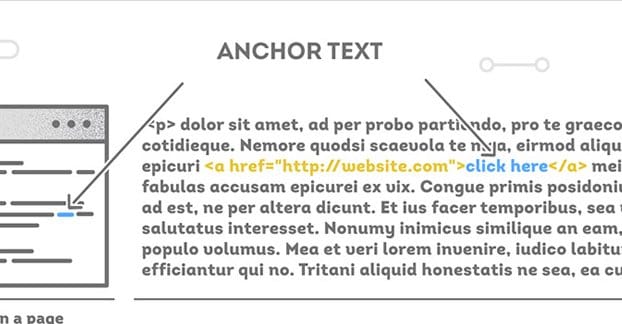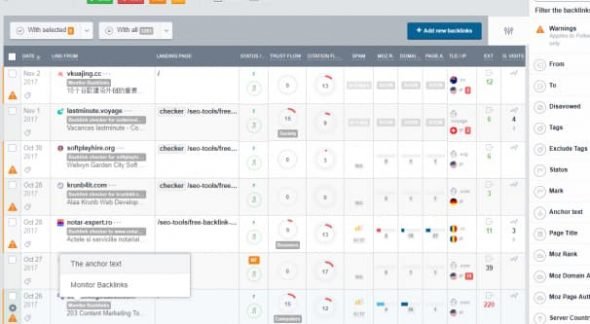We marketers have been trying to clean up the fallout for years after the bombshell Matt Cutts dropped on his blog. I’m sure you know the one; the Decay and Fall of Guest Blogging for SEO. I don’t even need to link it, you know right where it is.
Published at the start of 2014, that post stirred up marketing online in quite a few negative ways. It made a lot of people very wary of guest posting at all, which let me tell you, is quite the attitude to have to fight.
Compounding all of this is the fact that Google can and will penalize you for guest post links they believe are poorly done. You can in fact earn a penalty through guest blogging.
Quality is Everything
As with every other aspect of content marketing and web-based SEO, quality is everything. It’s paramount. It’s of the keenest importance that you pay attention to quality when you’re embarking upon a guest posting campaign, or any other sort of content marketing campaign.
A bad link will either do nothing for you at all, positive or negative, or will hurt your site. It doesn’t matter if that link came from a spammer scraping your content, a competitor buying a negative SEO campaign against you, or your own guest posting efforts. Bad links are bad for you.
It doesn’t even necessarily take a lot of links. One single link can result in a manual action, as seen in this post on Search Engine Land. This post is also old, and Google has dialed back their heavy hand a little, but it’s still possible.
There are a handful of different relative aspects of links and guest posts that you need to consider when judging whether or not you want a link, and if that link might hurt you. I’ll go over each of them in turn, but first let’s list them off.
- The relative quality of their site and yours.
- The quality of the content on both sides of the link.
- The contextual relevance of the link and the destination.
- The relevance of the anchor text of the link.
- Whether or not there are signs you paid for the link.
Each of these is important in its own way, and a failure in any one of them can lead to a link being marked low quality. A low quality link might be devalued itself, or it might contribute to an overall site penalty.
Relative Site Quality
Quality in all things is relative. Gypsum is a soft mineral and can be scratched by a harder mineral like quartz. Quartz is still softer than diamond, one of the hardest natural minerals, and yet a diamond can be cut or smashed with the right tools.
I tend to think of there being four general quality levels for websites, though obviously there is a lot of variation within each one. The lowest possible level is all of the spam websites out there. The content thieves, the scrapers, the robo-generated sites; anything with negative value or malicious code, anything that has been delisted from the index; that’s a bad site.
Above that you have the low quality sites. Low quality sites don’t have a lot of intrinsic value in and of themselves, but at least they’re not spam. The legions of personal blogs, small industry blogs no one reads, and the hordes of sites with under 100 annual views fall into this category. Most people who aren’t already high-end marketers or business owners start from this area.
Above those you have the middle quality sites, which run the gamut from small business blogs up to larger brand blogs that nonetheless aren’t relevant outside their niches. It’s a very broad category, which means a high end mid-quality site and a low-end site are going to be very different. Honestly, this category could be broken up more, but I don’t find it overly useful to do so.
At the very top, you have the broad interest sites and the megasites. Sites like Forbes, Amazon, Google, and anything else in the Alexa top 500 is likely to be a top-level site.
The exact divisions aren’t necessarily useful, but they serve as a guideline. Figure out where on the list your site falls. Most of us find ourselves at the high end of low quality sites or somewhere in the middle of the mid-quality sites.
Where does this come into play for guest posting? The key is to always “punch up.” Links from sites below your level aren’t necessarily going to be very valuable. If you’re at the high end of middle quality, or if you’re at the top level of quality, of course you can get links from lower tiers. Then again, at that point, why do you need to?
Avoid links from spam sites, and unless you’re on the low tier yourself, avoid links from it as well. They simply aren’t going to be worth the effort of going out and getting them in the first place.
Relative Content Quality
Much like the overall quality level of the site, you need to pay attention to the quality level of the content on either side of the link. One of the common issues I see with guest posting is that the guest post itself is rather dull, a short 500-word piece about the absolute basics of the subject. It’s something anyone involved in the industry already knows, and something newbies wouldn’t encounter. It doesn’t rank well, it doesn’t have much value on its own, and it’s not a good source for a link.
On the other side of the coin, people often try to link to an inappropriate page. I’ve seen plenty of guest posts that just link back to a homepage, or to a generic landing page that on its own doesn’t have a ton of value.
For good guest posting, you always want both the source and destination of the link to be high quality pieces of content. Stay in the good graces of Panda and you should be reasonably fine.
Link Contextual Relevance
Perhaps one of the biggest causes of guest posting failure is the relevance of the link. A good site linking to another good site can still be a bad link if the link has nothing to do with the content on the site. Here are a few examples.
- A fashion blog that, in a post, links to a random SEO blog in a post that’s nominally about lipstick color choices.
- A travel blog writing a review about a small town bread and breakfast in Spain, linking to a musician completely out of context.
- The example from Search Engine Land, where a blog links to another for data on Hispanic social networking, when there’s no such data present on the destination page.
The only time you can get away with a less than contextual link is when the link is coming from an author bio or another similar source. When writing an author bio, it can be a good idea to include a link to a personal profile site, a social network, or a flagship piece of content. That’s useful because the context is “this is something I have done.”
For links in actual text, in the blog post itself, the link needs to contextually make sense. More importantly, it needs to lead to a relevant page on your site. For example, I wouldn’t be able to toss in a line like “and now check out my friend Dave, who makes sick beats” and link to a hip-hop Soundcloud page right now. It’s out of context for the article. Likewise, I can’t say that I’m going to link to a Big Resource on Guest Posting and then link to some random article that mentions guest posting for 20 out of 3,000 words.
This is my strategy for guest posting.
- Investigate your target site thoroughly so you know what kind of content they want to publish.
- Pitch several possible ideas, to try to make sure at least one makes it through.
- Write an expansion of that kind of content on your own site; something high quality and deeper than what you write for the guest post.
- Write the guest post, linking to the expansion somewhere relevant in your text.
You don’t have to worry about finding the right kind of content on your site for an in-context link, or shoehorning in some vague sense of context into the guest post, when you just produce more relevant content.
Link Anchor Text
Anchor text is one of those on-page elements of SEO that tends to go in cycles, at least for me. Sometimes I pay a lot of attention to it and make a serious effort to vary up the anchors I’m using. Other times I have bigger thoughts on my mind, like large-scale link audits or old content purges. Anchors are one of those relatively minor SEO elements that can snowball into something dangerous if you let them get out of hand.
As far as anchors go with guest posting, the broad tip is to just use something descriptive. The title of a blog post you’re linking to works wonderfully. Otherwise, use a relevant long-tail keyword whenever possible. I know I’m guilty of using the “click here” or just “here” as an anchor on my own sites and in my own writing, but I’m generally more careful when it comes to guest posts I publish on other sites.
The reason anchor text is important is because it’s one SEO factor Google looks at to determine whether or not a link building campaign is likely to be spam or not. Back in the day, a lot of link sellers would allow you to choose an anchor for your links, and then they would spread that link and that anchor around to their dozens or hundreds of sites in their PBN.
Google would detect this when they went looking. They’d see that your site has 150 backlinks from low quality sites with a lot of similar-looking content, and every one of them used the same keyword or selection of keywords as anchor text. That’s a pretty strong pile of evidence to suggest that you either artificially made those links or paid for them to be made for you. Of course, it could be coincidence, but that’s a very unlikely coincidence, and Google doesn’t believe in coincidence when there’s a more likely explanation.
That said, I feel like anchor text isn’t going to be a huge issue unless you’re spamming the same link and the same anchor over and over. Generally, every few months you’re promoting something different, producing different content. The anchors you use to lead back to your site will naturally vary. That’s good enough to avoid an anchor-based penalty.
Paid Link Visibility
All of the above is good, but it goes out the window if your guest post is on a page that Google knows sells link space. If you’re guest blogging on a site that sells links, and the link is followed and the post is not labeled “sponsored”, you have a decent chance of eating a penalty for it. Google doesn’t want the influence of money on SEO, at least not in so direct a manner. Buying links, obviously or not, can lead to a penalty. That’s what hit most PBNs, that’s what hit MyBlogGuest and other major link selling sites, and it’s what will continue to hit people as long as they’re shamelessly using guest posting for SEO purposes.
If you buy links, make sure it’s not obvious that you’re doing so. If you’re buying links and it’s obvious, make sure the link is nofollowed and the post is marked sponsored. Yes, that will get rid of the obvious SEO benefits, but it’s still there for brand awareness and traffic. Better safe than sorry, right?
 ContentPowered.com
ContentPowered.com








